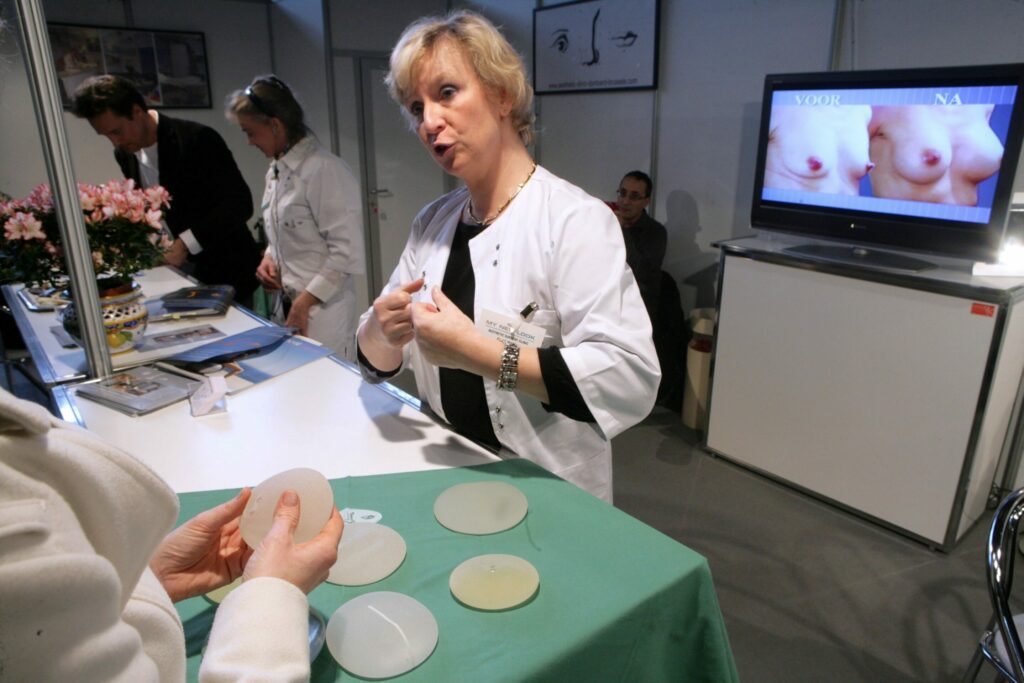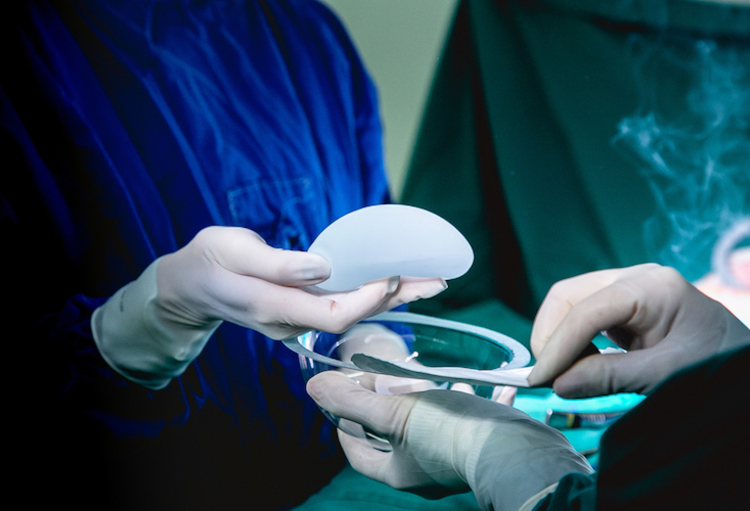As breast enlargements with implants are gaining in popularity, consumer protection organisation Test Achats investigated to what extent clients are protected when they go to a beauty clinic with a request for such a procedure and found "distressing situations."
Several 'mystery shoppers' sent by Test Achays visited 19 beauty clinics to supposedly be informed about breast implants. They discovered very "worrying" practices, the organisation announced in a press release.
"There is clearly a lot going wrong at the beauty clinics," said Laura Clays, spokesperson for Test Achats. "Many 'mystery shoppers' were made to believe that they absolutely had to have something done about their breasts, and how this happened is unimaginable."
Illegal practices
Many practices did not comply with the legal obligations that apply to surgical interventions with an aesthetic purpose. For example, it is not allowed to request advance payments or other "financial commitments" such as cancellation costs, in order to allow patients to decide whether or not to undergo the procedure with complete freedom.
Additionally, cosmetic surgery may also not be advertised. While these obligations (in theory) carry prison sentences of up to six months and fines of up to €40,000, Test Achats found many infringements.
In 16 of the 19 clinics, the researchers had to pay an advance, ranging from €500 euros to €3,500. At seven clinics, this had to be done within two weeks of the first consultation, and at one clinic even within 24 hours.

A stand on breast implants at the 'My New Look' fair at Kortrijk Xpo, Saturday 07 March 2009. Credit: Belga/Lieven Van Assche
Seven clinics also charged high cancellation costs. Depending on the period in which the cancellation was made, this could amount to the full cost of the operation. "Consumers who are hesitant about the procedure are encouraged to do it anyway," Test Achats said.
Seven clinics tried to attract consumers by means of slogans, advertisements, and/or emails with temporary deals around Valentine's Day and Mother's Day. In two clinics, the mystery shopper could get surgery faster than the legal 15-day waiting period. In one clinic, this was even possible after five days.
Seven doctors also provided a certificate for the consultation, so that partial reimbursement by the health insurance fund could be possible. In an earlier study into Botox from 2021, Test Achats also established this type of fraud: one doctor suggested doing half of the procedure "under the table," another suggested classifying the procedure as "reconstructive" to avoid VAT.
Insufficient information
In addition to illegal methods, it was also noticeable that very little information is provided about possible complications and the limited lifespan of silicone implants. Three of the 19 clinics provided proper written information about the procedure and the risks, but during the consultation itself, none of the clinics discussed all the complications.
What some doctors did talk about was what was wrong with the breasts of the researchers: they were told that their breasts were sagging too much, with a doctor comparing them to "deflated balloons". One researcher was told that "her husband would be happy after the procedure" and that "he would soon be able to play with them."
For Test Achats, the many infringements of the legislation show a "huge lack" of checks and controls. "We have already written to the Order of Physicians and the umbrella association of plastic surgeons to take measures and to address their members," said Clays.
The Economy and Health Ministries have also been informed, as have the National Institute for Health and Disability Insurance (INAMI-RIZIV) and the Finance Ministry for cases of fraud.

